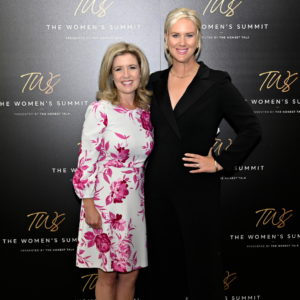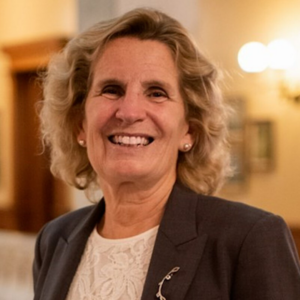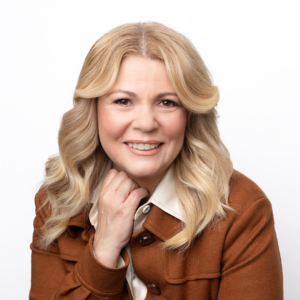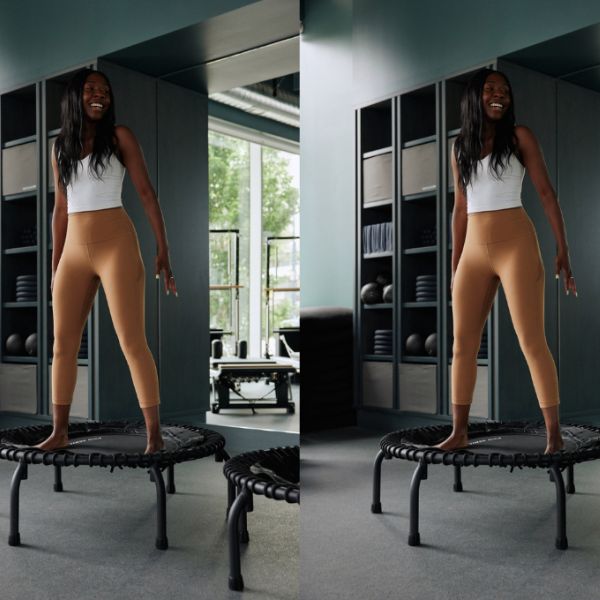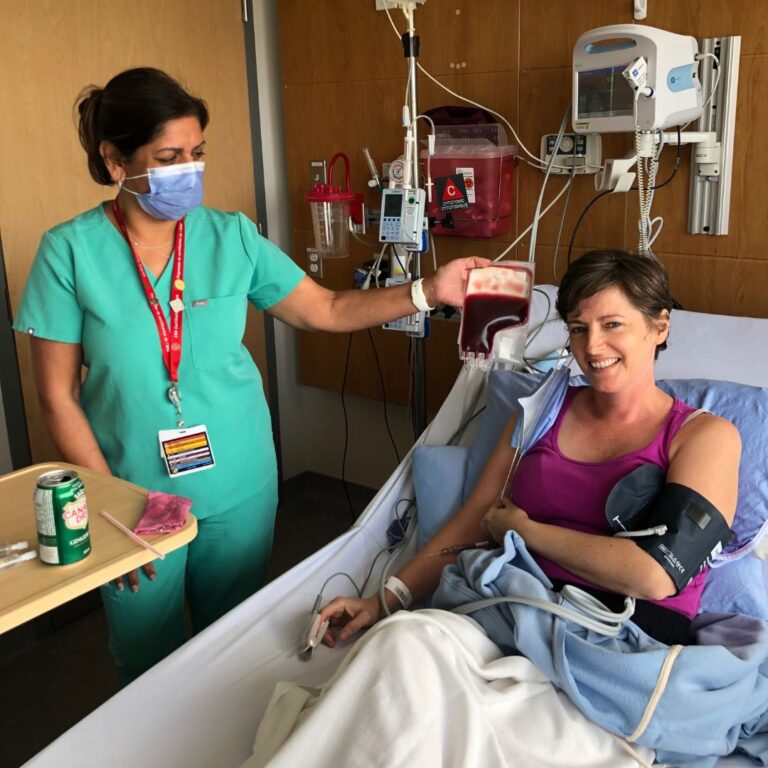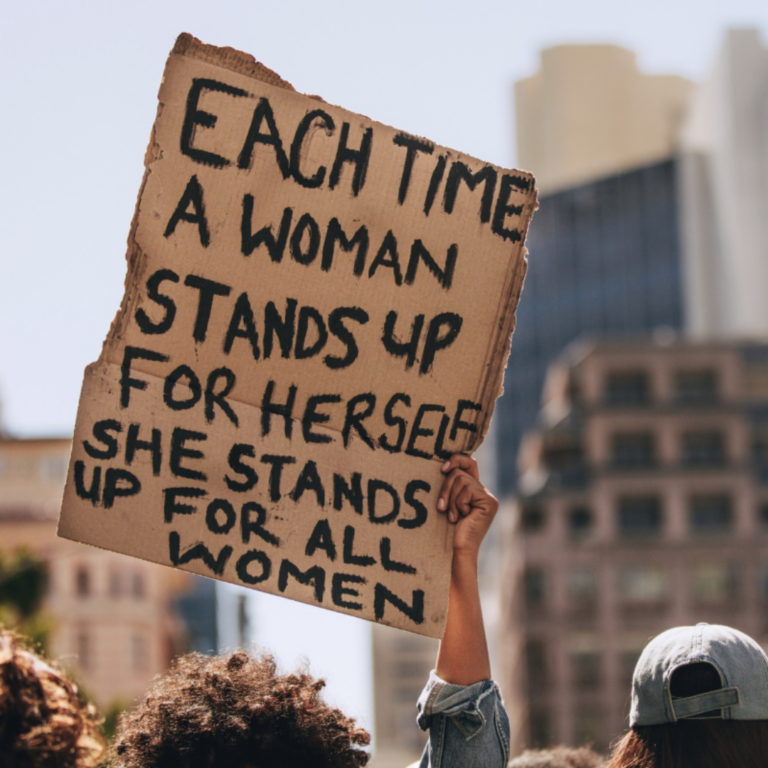Silken Laumann — Three-time Olympian, Canadian champion rower, and mental health advocate
Silken Laumann captured the hearts and minds of Canadians by rowing for this country in three separate Olympics — and winning three Olympic medals. She also won a world championship and a gold medal in the Pan American Games. Her athletic career was exceptional.
But what’s so interesting about Silken is that she’s also been a champion on another front — raising awareness about mental health. She’s so serious about it that she founded an organization called Unsinkable, which helps people take steps toward mental well-being. She’s also been very open about her own mental health journey and struggles.
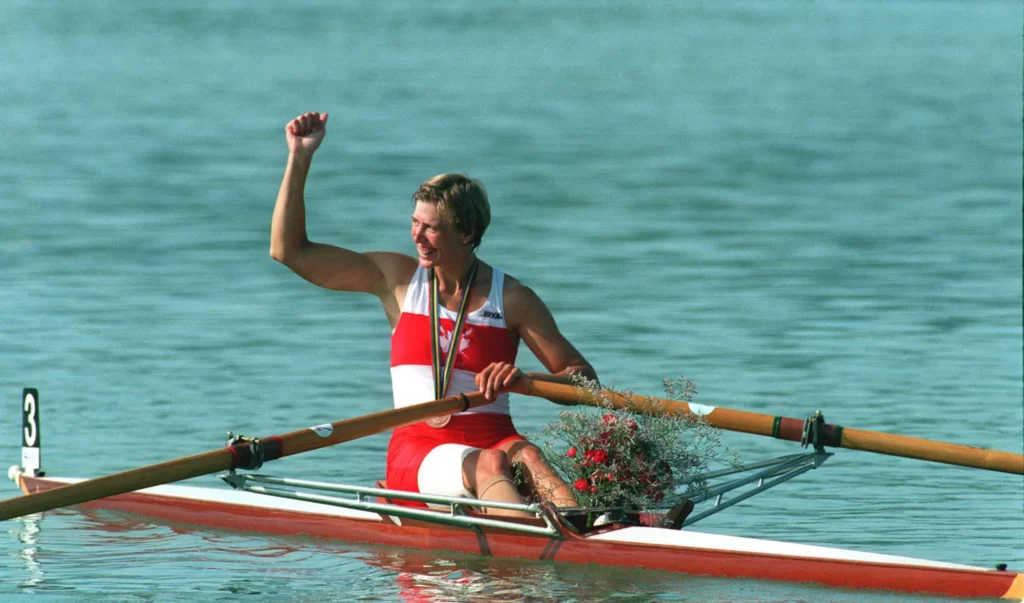
Silken Laumann about overcoming a devastating injury 10 weeks before the Olympics
Jennifer Stewart: Your story is about overcoming overwhelming adversity in order to achieve your dreams. For those who may not know it yet, can you tell us about what happened in May 1992, just 10 weeks before you were meant to compete for Canada in the Olympics?
Silken Laumann: It’s always funny to tell a story this far out; even my thoughts and feelings about that experience have changed as I’ve gained more perspective on it.
I was going into the 1992 Olympics as the world champion in singles skulls and rowing. I was looking forward to a great year and potentially winning a gold medal. And then 10 weeks before the Olympic Games, I was in a World Cup race in Essen, Germany, and in the warm up area another boat collided with mine and the side of my boat shattered, driving splinters into my right leg, shattering the ankle bone, and doing nerve and a massive amount of muscle and skin damage.
I was told by the attending physicians that I would probably never row competitively again. The injury truly was massive, and to this day still gives me lots of grief. There was part of me that just couldn’t accept that because I had dreamt every single day of going to the Olympics.
So I made the decision to keep pushing, and to see what I could do to get to the starting line in Barcelona. I think with a lot of grace, a lot of help, I got there. Ten weeks later, I was in the starting gates of the Olympic final in 1992 Barcelona. I was fortunate enough, through some superpower, some super force, combined with my will, to win a bronze medal at the ‘92 games.
Catherine Clark: That’s the most extraordinary story. Looking back, what do you think it was that gave you the courage and the strength to not just get through that situation, but to come out the other side with an Olympic medal?
Silken Laumann: I had the ability to eliminate all distractions and get zeroed in on what I wanted. That really was just a force at that point, and I had that laser intensity that was needed. I had dreamed about going to the Olympics every single morning that I woke up for over a decade before that.
I definitely have a superpower: my incredible focus and drive.
Silken Laumann
As well, I think I have a really strong ability to heal physically. I had a devastating accident in January — I shattered my shoulder in five places while mountain biking, and had surgery on my shoulder — and I repaired quickly because of both my body’s ability to repair, but also my mental tenacity and belief that I can do it.
I think the other thing is that an individual sport is not an individual sport. There were many people who just had to step up and support me and sometimes carry me through that 10-week period, because it was so incredibly intense and we were racing against time.
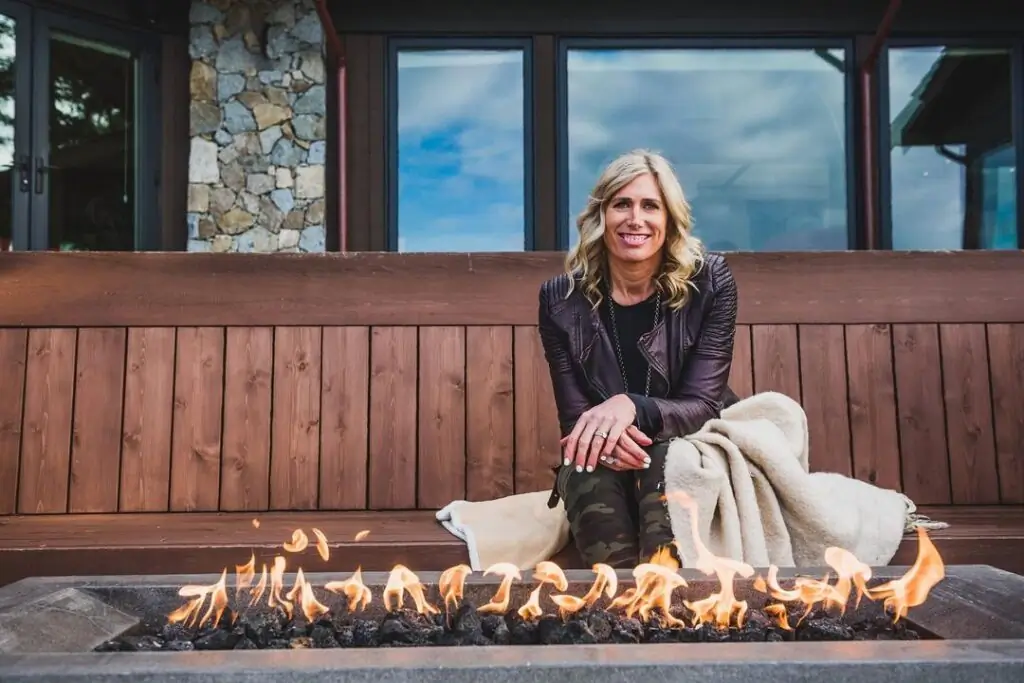
Silken Laumann about her childhood
Jennifer Stewart: I think people are always curious about where that drive comes from. Were you born with it, and if you weren’t, what created that kind of drive?
Silken Laumann: I was born with some of it — I see that in my own kids, especially in my daughter, that kind of intensity. Also, I had a mom who really struggled with her mental health, which meant I had a pretty unpredictable, difficult childhood, and I think that made me very independent, it made me very self-driven.
I wanted to create my own reality, create my own life, and that drive came very early in my life.
Silken Laumann
Catherine Clark: If you’re comfortable continuing to talk about your mom, I wonder if you think that in some ways, although it was such a negative experience at the time, it contributed to your ability to be this kind of superhuman person, and how you kind of separate those two things and yet celebrate what it allowed you to become?
Silken Laumann: Growing up with my mom being so explosive and unpredictable, and never knowing what I was coming home to, that definitely was really difficult. It created a lot of layers to who I am today, but certainly, as a little girl, I had to survive, I had to find inner resources to deal with this constant unpredictability inside our home. It absolutely did make me stronger.
It also probably shut off parts of me as a person — sometimes my ability to be reasonable, which is actually pretty helpful as an Olympic athlete, but probably not as helpful in other areas of my life.
I would never go back and say, ‘Oh, I’m glad that happened to me.’ I would never go back and say, ‘I’m glad I had my accident in 1992.’ Those have been very pivotal and difficult experiences in my life, but they’ve also shaped me as a human being and they’ve given me a kind of strength and resiliency that I’m actually quite grateful for.
Growing up in a home as I did, and with the struggles that I did, I’m very grateful for the journey I’ve taken since then, which has been one of, first of all, self-forgiveness, because one of the things that happens to a lot of children who don’t receive unconditional love and live in environments where they need to be hypervigilant is they turn it inward.
I was very hard on myself for many years. It’s also given me this depth of capability and love and capacity beyond myself as a mother and as a friend and running a not-for-profit.
That’s really enriched my life — you can’t separate one from the other. There’s an expression I always think about as I’m going through difficult things in my life: we are changed by our experiences, you don’t become who you are without those experiences. Would I be as resilient and strong and have as much capacity? No. It doesn’t work that way.
We are changed by our experiences, you don’t become who you are without those experiences.
Silken Laumann
Support for young women and their parents
Jennifer Stewart: I wanted to thank you for being so brave and honest about what you’ve gone through, and talk a little bit, too, about the fact you suffered anorexia, and you conducted self harm. We’re coming out of a pandemic now, and I’m sure you’ve seen the headlines about eating disorders and self harm — they’ve skyrocketed, particularly for young women and teenage girls. Having lived through this, what message do you have for those girls and boys, and also their parents?
Silken Laumann: It does differ from person to person, but in my own personal experience, my eating disorder was about control. It was about trying to control a world that was out of control.
I think that pretty well describes living through a worldwide pandemic, right? We shouldn’t really be shocked that so many young people today are having so many body image problems, but they’re not actually body image problems. They’re often problems of wanting to control and wanting to gain some sense of agency. And that’s what I was looking for, but obviously, at the end of the day, I realized I was actually out of control.
I think we have to have a lot of compassion for what young people are going through today. I knew when the pandemic happened, it was going to be the young people who were going to be most profoundly affected, because developmentally, they’re taking it all in, and they’re developing their perceptions of the world and who they are in the world at a time where the world feels extremely unsafe. And then at the tail end of it, I think there’s been a huge amount of exhaustion.
I knew when the pandemic happened, it was going to be the young people who were going to be most profoundly affected.
Silken Laumann
And then, of course, the world events — the earth is burning, things are happening in the news that young people are just so aware of — it’s all contributing. We have to find ways of providing more integrated support for them and for families.
I think we need to take it seriously, and we need to take the anxiety that young people are feeling about their experiences seriously.
Silken Laumann
One of the best things that young people can do and families can do is talk to others about the experiences. When I was going through mental health issues — not so much in my teens, because in my teens I didn’t know how to access help — but in my adult life, when I finally swallowed my pride and asked for help, it was incredibly powerful to talk about it. In my case, initially to a therapist and later in a book to the entire world, but there’s a therapeutic element to sharing our stories.
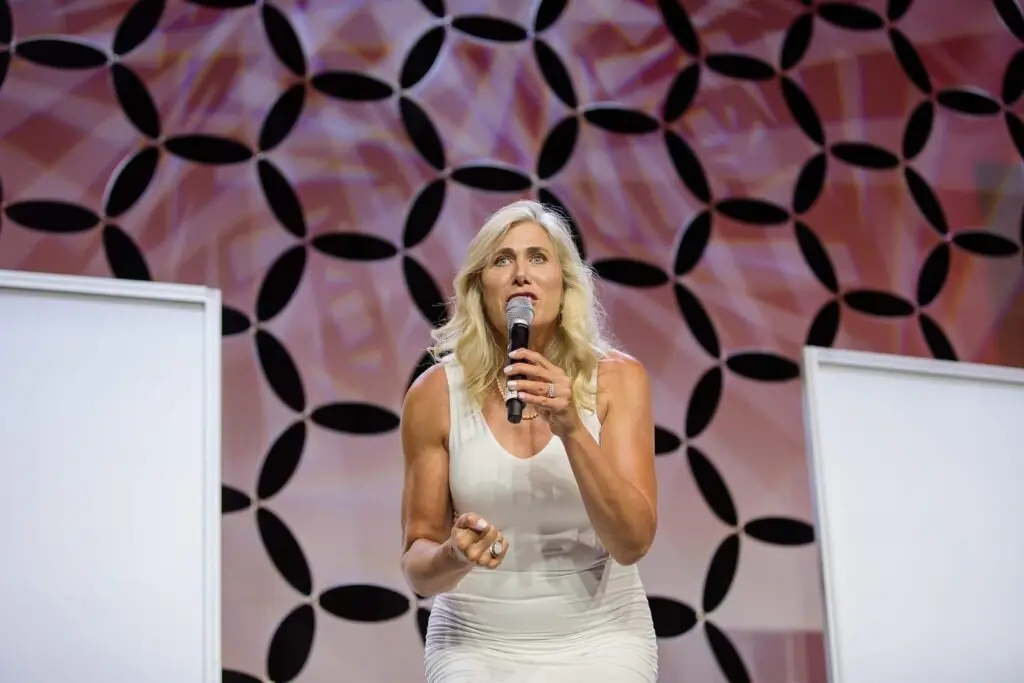
Silken Laumann about her mental health journey and struggles
Catherine Clark: You talked about Unsinkable, your charity, but that’s also the title of your memoir. I find it really interesting that you reference the idea of swallowing your pride in order to speak to therapists, to seek help in that way. But then, when you did take your story to the public stage by writing this memoir, how tough was that?
Silken Laumann: In the beginning, I carried so much shame about not being able to cope, particularly when I had two small kids. And I went through a divorce when my kids were two and four. It was shortly after the divorce that I started almost hypermothering, like overcompensating for everything I felt my kids were going to miss living in a separated family.
That just drove everything into overdrive, until finally a series of events really brought me to seeking out counseling for the first time. Looking back now, it’s almost hard to remember how fearful I felt about asking for help and how embarrassed I was.
It’s so frustrating, but we still sometimes think it’s for other people, or it’s a sign of weakness. Somebody asked me recently, ‘Why should I go to counseling, it’s not going to change what happens?’ And it doesn’t change what happened — my mom was ill, shit went down in our house, it was hard; that doesn’t change — but how I view it changes, becoming aware of how I shut down parts of myself.
And I think I’m having freedom today in the decisions that I’m making, but am I having freedom or am I actually acting in some sort of warped defense of the things that I experienced when I was younger? Those are all questions that, through a counseling process, we can get to the root of.
It was scary. I felt at some level I was failing by asking for help. I thought there was something very wrong with me for not being able to cope. What did I have to be unhappy about? I had a magical life — I was well known in Canada, I had enough money, I had two beautiful kids, and I had the adoration of an entire country. What did I have to complain about?
How did I get to writing a book about it? Well, it was a journey. And I think, in some ways, it was the only way that I could let it out. I couldn’t let it leak out in tiny little stories. I needed to tell the whole story, as well as I knew it at that point in my life, and it came as a surprise, even to some of my closest friends.
About Unsinkable — her not-for-profit organization
Jennifer Stewart: Talk to us about the organization you founded, Unsinkable, and why that was so important to you. What does ‘unsinkable’ mean to you, because it’s the name of your not-for-profit and it’s also the name of your memoir.
Silken Laumann Unsinkable, of course, was a little bit of a play on the rowing thing, because we’re on water. And I think about resilience, about the hard things people go through in their life and how, at the end of the day, I really believe that people are unsinkable, and that the human spirit continues to rise. Most people are able to get through horrendous life experiences and still float. I love that kind of idea of no matter how rough the seas, that we can still float. So that’s where it came from in the book, and it’s how I think of human beings as I’ve heard more and more of their stories.
The depth of personal stories that I heard after publishing Unsinkable just blew me away, and that’s really where the idea of Unsinkable the charity came from — that personal stories are powerful and people are really inspiring.
When I started Unsinkable, I thought we were just going to have a website of all these cool stories, and people will read them. Once we started publishing them and driving them out on social media, the storytellers themselves wanted to connect with one another.
And one day, I asked myself the question, and I said it out loud, ‘Who’s talking to the young people, who’s talking to the teenagers about their experience today? Somebody should talk to them.’ And from that, we launched a television show called Unsinkable and it was just fabulous. It was all these young people, sharing what they needed, what they were afraid of, and what their hopes were in the middle of the pandemic. That really got us focused on programs that we needed to create to fill the gaps that we were seeing in our healthcare system and what was happening in communities. We started hiring part-time counselors, and about half of our staff have come from our community with lived experience.
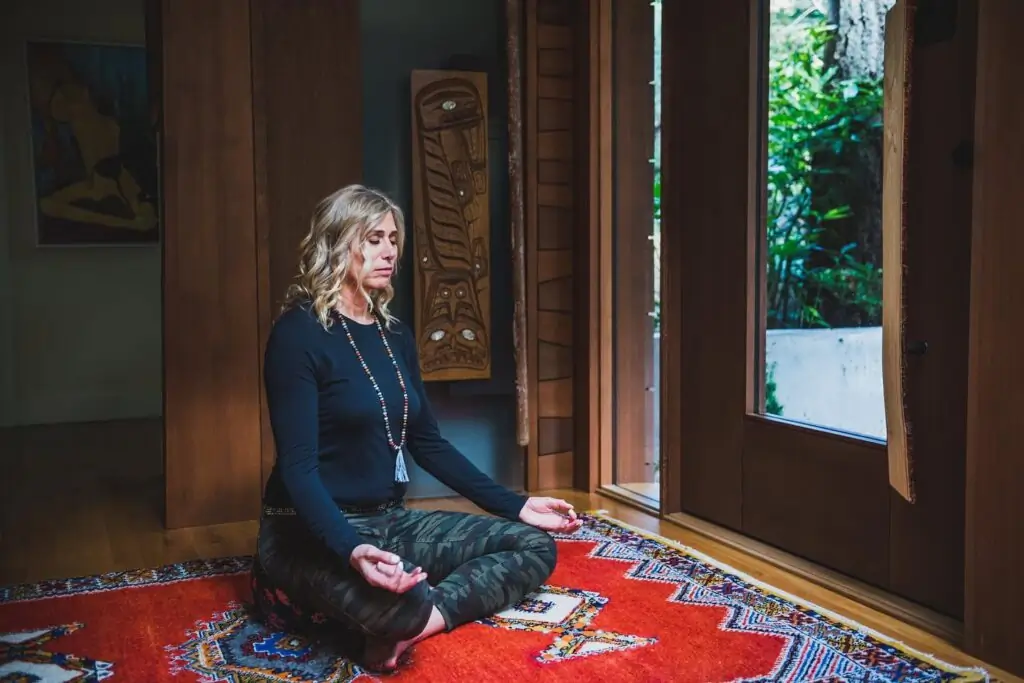
Silken Laumann about staying healthy
Catherine Clark: We talk to a lot of women who are always trying to integrate things into their lives to keep them grounded. How do you keep yourself positive? What do you do to stay healthy and to find joy in your life?
Silken Laumann: You’re hitting such an important and powerful point really, because what you’re saying is that most people are really struggling to find peace in their life, to find a sense of meaning — basically to downshift their nervous systems. I struggle with the same things that most people do, and especially women in the child-raising years in particular because the mind is so fractured at that time.
I’m a very internal person; I think deeply about things. I could sit for a whole day just with myself, not talking to another single human being, and I’d be perfectly happy. We are not getting enough of that as women, particularly in our mothering years or the professional years. We’re all looking for these little strategies and reprieve. T
he most helpful for me is meditation — I like moving my body and sitting was really hard for me, but I notice that when I have a regular sitting practice, usually in the morning for around 20-30 minutes, it really does have an impact on my ability to not boil over.
Our nervous systems get so overstimulated, and I find meditation is just a way to downshift it.
Silken Laumann
I think that there’s this misconception that we’re going to somehow emerge from the chaos of our day or a stage in life, and everything will be peaceful then. It’s an illusion that gets perpetuated — I don’t think you just magically transition into this super peaceful part of life. You learn strategies, you learn more about yourself, and that brings you more inner peace. So for me yoga, breathwork, meditation, walking have been really powerful.
The other thing for me that’s incredibly important, and has been a bit of a lifelong journey, is learning how to say no, full stop. That is really hard for me. When I started to realize that the entire direction of my life was being shaped by things that I said yes to, I became a lot more mindful and would take pause and consider before saying yes.
At this stage of my life, I think that I’m much more aware before I accept an invitation anywhere — for lunch with a friend, for a walk, for a podcast, for contributing an article, whatever it is — I pause and ask myself, ‘Do I really want to do this?’ If the answer is yes, then I say, ‘Well, why? Why do I want to do this?’
Women need to know that there isn’t a perfect way of doing things. We need to talk a lot more authentically about how we struggle, why we struggle, what we can do about that struggle, and give each other permission to drop the perfectionism because it’s killing us. It’s so toxic.

